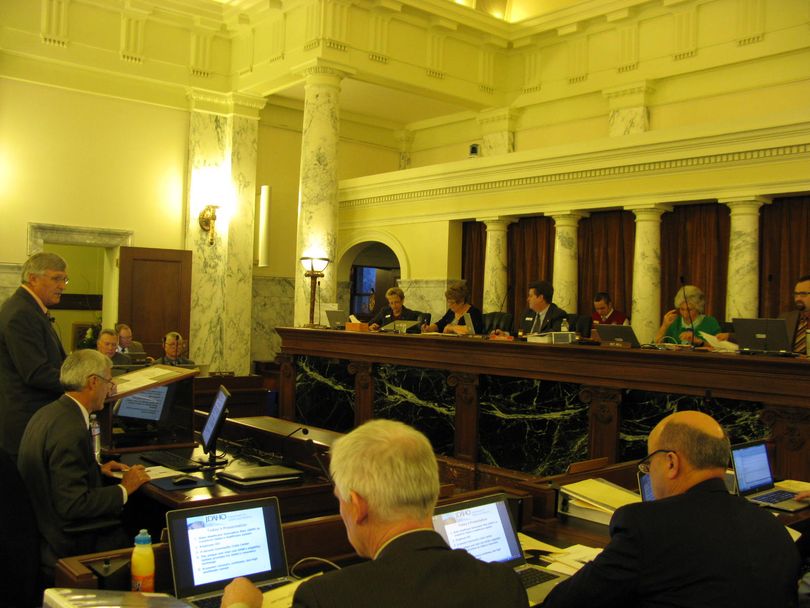Health & Welfare budget proposal includes reforming approach to health care

Idaho Health & Welfare Director Dick Armstrong is giving an overview of the giant Health & Welfare budget this morning to lawmakers on the Joint Finance-Appropriations Committee, and among the many topics he’ll cover this morning, he said, is to replace the work that Health & Welfare has been doing since 2008 to improve Idaho’s current medical indigency program with a new program called Healthcare Policy Initiatives. “The medical indigency program funded our activities to reduce the costs to the counties and the state for indigent health care,” Armstrong said. “We propose transitioning to Healthcare Policy Initiatives to expand our vision and scope to a new level, one that can improve healthcare and lower costs for all Idaho citizens.”
He said, “We have accomplished all we can for controlling indigent healthcare costs within that program’s framework. Now we have the opportunity to think bigger with Healthcare Policy Initiatives. We can now do something extraordinary for the healthcare system as a whole through the Idaho SHIP initiative.”
That refers to the State Healthcare Innovation Plan, or SHIP, a four-year federal grant for almost $40 million. It’s aimed at refocusing Idaho’s health care system to a “patient-centered medical home model,” in which a patient’s primary care provider coordinates the care for the patient along with a team. The department is asking for spending authority for $8.9 million of the grant next year.
Armstrong urged lawmakers to consider the recommendations of the governor’s Medicaid redesign work group; Gov. Butch Otter has called on the Legislature to hold hearings on the proposals. “The current indigent program does not work well,” Armstrong said. “The situation with the gap population is equally flawed.” That’s people who make too much to qualify for Medicaid, but not enough to qualify for tax credits to buy subsidized insurance through the state health care exchange. Armstrong said, “No matter what direction you decide to go, I think we can do a better job than what we have.”
Overall, Health & Welfare’s budget request for next year shows a 3.3 percent increase, but much of that is made up of the governor’s recommended 3 percent merit raises for state employees, non-discretionary adjustments, and the federal grant. Without those, Armstrong said, “The actual increase is much smaller, closer to 1 percent.”
Medicaid remains about four-fifths of the department’s budget, similar to last year. Eighty-five percent of the department’s appropriated funding goes to private-sector vendors for services and goods. The budget shows an increase of 23 full-time positions from the current year, but much of that comes from converting long-term temporary positions into official full-time positions, with no change in cost. The total number of positions in the budget request, at 2,870, is 271 below what the department had six years ago. Armstrong's slide presentation to lawmakers is online here, along with the schedule for health and human services budget hearings all this week.
